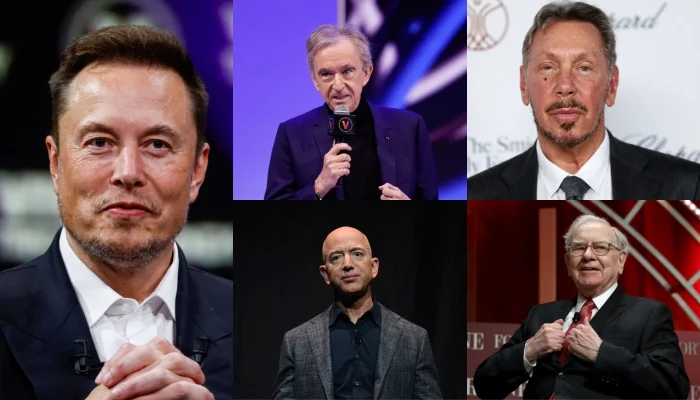According to a research by Oxfam that CNN cited, the richest five people in the world have more than doubled in value since 2020, while five billion people worldwide have seen their standard of living decline.
According to the annual inequality report by Oxfam, published just before the start of the annual World Economic Forum meeting in Switzerland, the world’s five richest men — Tesla chief Elon Musk, Frehcn luxury mogul Bernard Arnault, Amazon founder Jeff Bezos, Oracle founder Larry Ellison and American tycoon Warren Buffett — have increased their fortunes by 114% to $869bn, growing it three times faster than the rate of inflation.
The world’s poorest five billion individuals, who account for 60% of the global population, have seen a 0.2% real loss in their overall wealth over the same time period.
In addition, assuming present trends hold true, the world will see its first trillionaire in less than ten years, yet it would take an additional 229 years to erase poverty.
There is at least one billionaire shareholder or chief executive officer in seven of the ten biggest publicly traded corporations in the world.
Oxfam reports that 43% of global financial assets are held by the wealthiest 1% of earners. This 1% owns 32% of the financial wealth in the United States, 50% in Asia, 48% in the Middle East, and 47% in Europe.
Elon Musk, the CEO of SpaceX, Tesla, and a number of other businesses, increased his wealth 737% between March 2020 and November 2020, reaching a total of $245.5 billion.
Bernard Arnault, the chairman of the French luxury goods conglomerate LVMH, and his family increased their net worth to $191.3 billion, a 111% increase.
The creator of Oracle, Larry Ellison, accumulated wealth of $145.5 billion, up 107%, while Jeff Bezos, the founder of Amazon, is worth $167.4 billion, up 24%.
Investor and CEO of Berkshire Hathaway Warren Buffett increased his net worth to $119.2 billion, a 48% increase.
According to a report by Oxfam, “Corporate power is used to drive inequality: by squeezing workers and enriching wealthy shareholders, dodging taxes, and privatising the state.”
It continued: “Around the world, members of the private sector have relentlessly pushed for lower rates, more loopholes, less transparency, and other measures aimed at enabling companies to contribute as little as possible to public coffers.”
Organization for Economic Co-operation and Development (OECD) member countries’ corporate taxes have decreased dramatically, from 48% in 1980 to 23.1% in 2022, according to Oxfam.







